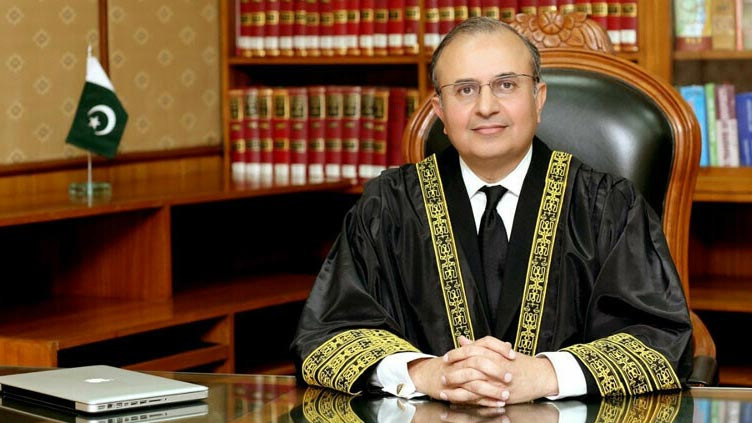ISLAMABAD: Pakistan’s senior-most Supreme Court judge, Justice Mansoor Ali Shah, has raised objections to the extension of the constitutional bench’s tenure, warning that such a move without resolving the 26th constitutional amendment case could harm the judiciary’s integrity.
In a letter dated June 16, addressed to the Secretary of the Judicial Commission and later circulated among commission members, Justice Shah expressed concerns over the decision’s timing. He cautioned that hastiness could damage the judiciary’s institutional credibility and public trust.
Justice Shah noted that he would not be present for the June 19 Judicial Commission meeting and had informed the authorities in advance. He requested that his absence and written stance be officially recorded in the meeting minutes. The judge warned that expanding the constitutional bench without resolving the underlying constitutional issues could cast doubts on the judiciary’s impartiality. “The legitimacy of the judiciary is directly tied to public trust, and any perception of bias can harm the institution,” he wrote.
Justice Shah also expressed concern over increasing executive influence on the Judicial Commission, stating it posed a threat to judicial independence.
As a way forward, he proposed that all Supreme Court judges be designated as part of the constitutional bench until the 26th amendment case is resolved. He also recommended that clear and transparent criteria be established for bench appointments to avoid ambiguity and political speculation.
Earlier, The Pakistan Tehreek-e-Insaf (PTI) on Saturday moved the Supreme Court (SC) against the 26th constitutional amendment. The PTI moved its plea in the SC through Sameer Khosa, in which the 26th constitutional amendment was challenged.
It has been argued in the application that parliament can’t amend the fundamental features of the constitution, stressing that freedom of the judiciary is an essential part of the constitution. It further said that no amendment could be made against the freedom of judiciary, adding that the amendment in question was against the basic principle of distribution of powers described in the constitution.
The application further pleaded that all actions taken under the 26th constitutional amendment be nullified and the Judicial Commission of Pakistan (JCP) should be barred from appointing the judges until the final verdict on the amendment. The 26th Constitutional Amendment in Pakistan significantly altered the judicial system, particularly impacting judicial appointments and the structure of the Supreme Court. The amendment introduced changes to the Judicial Commission, which nominates judges, by adding legislative and executive members, thereby increasing political influence. It also changed the process of appointing the Chief Justice of Pakistan, giving a special parliamentary committee the power to nominate the CJP from the three most senior judges. Additionally, the amendment established a constitutional bench within the Supreme Court and limited the court’s ability to question cabinet decisions. –Agencies



